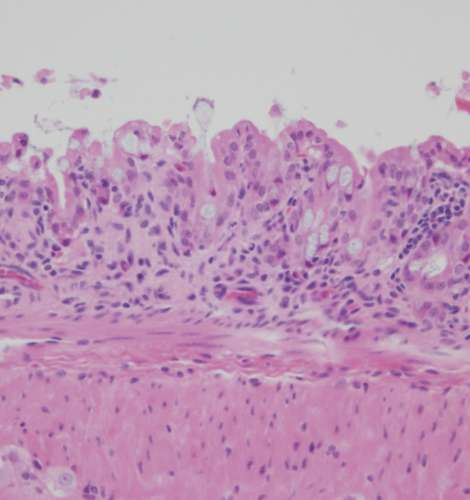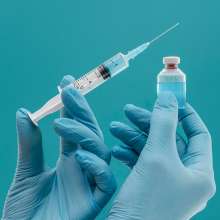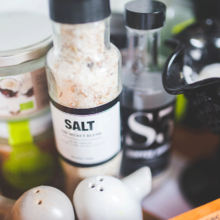A study in mice shows that triclosan, a common antibacterial agent found in thousands of personal care, home cleaning and other consumer products, triggered inflammation, increased the severity of inflammatory bowel disease symptoms, and exacerbated colon cancer growth.
Background
Triclosan is an antibacterial and antifungal agent and preservative. It is so widely used that exposure is practically unavoidable in the US and many other Western countries, and the entire US population is exposed to it at some point in their life.
The antimicrobial active ingredient is added to a variety of products where it acts to slow or stop the growth of bacteria, fungi, and mildew. Triclosan could be found in 75% of liquid soaps and 29% of bar soaps in the year 2000, and in 2014, triclosan was used in more than 2,000 consumer products.
Developed in the 1960’s, Triclosan was first used as a hospital scrub. It is now a common ingredient in soaps, shampoos, deodorants, toothpastes, mouthwashes, cleaning supplies, pesticides, clothing, kitchen utensils, cookware, furniture, toys, bedding, socks, and trash bags. In commercial, institutional, and industrial equipment uses, triclosan is incorporated in conveyor belts, fire hoses, dye bath vats, or ice-making equipment.
When using products containing triclosan, a small amount through skin or mouth can be absorbed. A large 2008 study in a representative sample of American children and adults found triclosan in the urine of nearly 75% of those tested. It is associated with endocrine (hormonal) toxicity and disruption.
The US Food and Drug Administration (FDA) banned over-the-counter consumer antiseptic wash products containing triclosan effective September 2017. The products banned include liquid, foam and gel hand soaps, bar soaps, and body washes, but other products not regulated under the FDA are not included.
The ruling followed studies showing that, in terms of health safety, triclosan
- alters hormone regulation in animals
- might contribute to the development of antibiotic-resistant germs
- might be harmful to the immune system
In terms of health benefits in human, as of 2013, the US FDA had found clear benefit to health for some products containing triclosan, but not in others - for example it is an effective antiseptic before surgery at wound site, but there is no evidence that triclosan in antibacterial soaps and body washes provides any benefit over washing with regular soap and water.
When added to toothpaste, triclosan has been shown to prevent gingivitis. A 2013 review of 30 studies concluded that triclosan/copolymer-containing toothpastes reduced both dental plaque and gingival inflammation by 22% when compared with fluoride toothpastes without triclosan/copolymer.
As an environmental concern, triclosan is among the top ten pollutants found in American rivers and is persistent in the environment.
The study
Researchers fed mice for three weeks with food containing various concentrations of triclosan that reflect the concentrations reported in human blood samples.
They found that these mice displayed more systemic and colonic inflammation compared to control mice.
Furthermore, triclosan exposure increased the severity of colon inflammation in the mouse models of inflammatory bowel disease (IBD) – an effect that persisted even when low doses of the chemical were administered.
Triclosan also increased tumour size and reduced survival rate in a separate group of rodents with colon cancer.
When experimenting with germ-free mice, the researchers found that triclosan had no such harmful effect on them. Because germ-free mice have no gut microbes, the researchers suggest that triclosan causes inflammation and cancer growth in the colon by altering the gut microbiota.
They concluded that triclosan altered gut microbiota, triggered colon inflammation, increased the severity of colitis symptoms, and spurred and exacerbated colon cancer in mice.
Implications
Although the study is limited to mouse models, this work suggests that the effects of triclosan on human health should be examined more closely.
The researchers stress that further studies should assess the impact of triclosan on human gut health, and determine whether individuals with IBD or colon cancer could be more vulnerable to the adverse effects and may need to avoid exposure.
Findings of this research are reported in the journal Science Translational Medicine. The team led by scientists at the University of Massachusetts, Amherst include researchers from University of Wisconsin-Madison; the University of California, Davis; Boston Children's Hospital and Beth Israel Deaconess Medical Center, Harvard Medical School; Northwestern University, Chicago; Jiaotong University and Northwest University, Xi'an, China.





